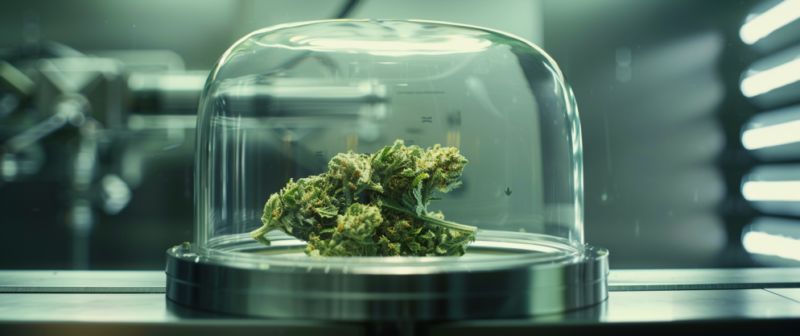Does Delta 8 Make You Laugh
Delta 8 tetrahydrocannabinol has gained popularity for its milder psychoactive effects compared to Delta 9 THC. One intriguing question many users have is: does Delta 8 make you laugh?
This compound interacts with the body’s endocannabinoid system in a way that can influence mood and emotional responses. While individual experiences may vary, some users report feelings of euphoria and relaxation, which can lead to bouts of laughter and an overall uplifted mood.
Understanding how Delta 8 affects laughter and joy can provide deeper insights into its potential benefits and recreational uses.
Related Post:
What Does Delta 8 Do For You? Benefits and Effects
What Does Delta 8 Do To People? Here’s What You Should Know
Does Delta 8 Make You Laugh?
Reports of increased giggles, fits of laughter, and an overall uplifted mood after consuming Delta 8 products are not uncommon. This phenomenon has sparked curiosity among users and researchers alike.
Many anecdotes highlight how, after partaking in Delta 8 tetrahydrocannabinol, individuals find themselves easily amused, finding humor in mundane situations that would not typically evoke such a response.
Scientifically speaking, Delta 8’s potential to trigger laughter may be attributed to its interaction with the endocannabinoid system, which plays a crucial role in regulating emotions and mood. The release of certain neurotransmitters and hormones triggered by Delta 8 could potentially lead to a relaxed and euphoric state conducive to laughter.
Why Do Some People Experience Laughter While Using Delta 8?
The laughter-inducing effects of Delta 8 can be attributed to its interaction with cannabinoid receptors in the brain, affecting neurotransmitters like dopamine that are linked to mood and pleasure.
When Delta 8 binds to cannabinoid receptors in the brain, it triggers a cascade of biochemical reactions that modulate the release of neurotransmitters responsible for regulating various functions, including emotions and laughter.
The activation of these receptors by Delta 8 influences the levels of dopamine, a key neurotransmitter associated with feelings of joy and euphoria. This mechanism explains why consuming Delta 8 often results in a heightened sense of happiness and giggles.
Are There Other Emotional Effects of Delta 8?
Beyond laughter, Delta 8 can influence various emotional states, such as enhancing mood, promoting relaxation, and potentially reducing stress levels in some individuals.
In terms of mood regulation, the interaction between Delta 8 and the endocannabinoid system is crucial, as it can help balance neurotransmitters responsible for feelings of happiness and well-being. This can lead to an overall uplifted mood and a sense of calmness.
The relaxing effects of Delta 8 can aid in unwinding after a long day or during times of high stress. By promoting relaxation, this cannabinoid may help individuals manage find moments of peace amidst daily challenges.
For some, the potential stress-reducing properties of Delta 8 could offer a soothing escape from the pressures of modern life, allowing for a clearer mind and improved emotional resilience.
The Science Behind Laughter and Cannabinoids
Laughter is influenced by a variety of neurological and physiological processes, including those modulated by cannabinoids. Cannabinoids, such as Delta 8 THC, interact with the body’s endocannabinoid system (ECS), which plays a crucial role in regulating mood, stress, and pleasure responses.
When cannabinoids bind to receptors in the ECS, they can alter neurotransmitter release, potentially enhancing feelings of euphoria and relaxation, which may facilitate laughter. Delta 8 THC, in particular, is known for providing a milder psychoactive effect compared to Delta 9 THC, possibly leading to a more controlled and enjoyable experience.
This modulation of mood and stress levels can create an environment where laughter is more easily triggered, whether through social interactions, humor, or the reduction of tension.
Understanding the science behind laughter and cannabinoids offers insights into how substances like Delta 8 THC can influence our emotional and physiological states, potentially promoting laughter and overall well-being.
Comparing Delta 8 and Delta 9: Laughter and Euphoria
Delta 8 THC and Delta 9 THC, both derived from the cannabis plant, offer distinct experiences in inducing laughter and euphoria. While both cannabinoids share similarities, such as their ability to stimulate joy, their differing chemical structures and interactions with the endocannabinoid system lead to unique effects.
Chemical Structure and Laughter Induction
Delta 8 THC and Delta 9 THC possess similar chemical compositions, but a subtle variance in their molecular structure impacts how they interact with the body.
Delta 9 THC’s double bond on the ninth carbon chain results in a stronger binding affinity to CB1 receptors, leading to a more intense and immediate euphoric experience, sometimes accompanied by laughter.
In contrast, Delta 8 THC’s presence of a double bond on the eighth carbon chain offers a milder, more gradual onset of euphoria, making it less likely to induce uncontrollable laughter or intense emotional responses.
Intensity of Laughter
Delta 9 THC is renowned for its ability to induce hearty laughter and elation, often characterized by amplified sensory perception and a profound sense of joy. However, the intensity of laughter associated with Delta 9 THC can sometimes border on overwhelming, potentially leading to paranoia in susceptible individuals.
On the other hand, Delta 8 THC provides a more subdued form of euphoria, resulting in gentler and more controlled laughter experiences. This makes Delta 8 THC a preferred option for users seeking a more balanced and manageable high without the risk of excessive laughter or emotional turmoil.
Duration of Laughter Effects
The duration of laughter effects varies between Delta 8 and Delta 9 THC. Delta 9 THC’s effects typically onset rapidly and can last for several hours, offering prolonged periods of laughter and euphoria.
While this extended duration may be desirable for recreational use, it can pose challenges for individuals requiring mental clarity. In contrast, Delta 8 THC provides a shorter-lived euphoric experience, characterized by more fleeting moments of laughter.
This shorter duration makes Delta 8 THC a favorable choice for users seeking functional highs without extended periods of impairment.
Emotional Stability and Joy
Emotional stability and the quality of joy experienced are crucial factors in comparing Delta 8 and Delta 9 THC. While Delta 9 THC can evoke profound joy and laughter, it may also induce emotional fluctuations, including periods of paranoia, especially at higher doses.
Conversely, Delta 8 THC offers a more stable emotional state, characterized by smoother and more consistent laughter experiences. This emotional stability enhances social interactions and overall enjoyment, minimizing the risk of sudden mood swings or negative emotional responses.
Delta 8 Dosage and Its Role in Inducing Laughter
The optimal dosage of Delta 8 THC can vary widely among individuals due to factors such as body weight, metabolism, tolerance, and the method of consumption. Generally, beginners are advised to start with a low dose, typically around 5-10 milligrams, to gauge their body’s reaction.
For many users, a dose in the range of 10-20 milligrams can effectively promote relaxation, mood enhancement, and a sense of euphoria that may lead to laughter and increased sociability.
Higher doses, around 20-40 milligrams, are more likely to produce pronounced psychoactive effects and intense euphoria, which can result in uncontrollable laughter and heightened sensory perception.
It is essential to approach dosing with caution and incrementally increase the amount to avoid potential adverse effects, ensuring a pleasant and laughter-filled experience with Delta 8 THC.
How Can You Use Delta 8 Safely?
Ensuring the safe consumption of Delta 8 involves proper dosage management, adherence to precautions, and consideration of potential interactions with medications or pre-existing health conditions.
In terms of dosage, it’s crucial to start with a low amount and gradually increase it to find the optimal balance for your body.
Consulting a healthcare professional before incorporating Delta 8 into your routine is recommended, especially if you are taking other medications. Closely monitoring your body’s response and any side effects is essential.
If you experience any adverse reactions, discontinue use immediately and seek medical advice. Remember, safety always comes first when experimenting with cannabinoids like Delta 8.
Is Delta 8 Legal?
The legality of Delta 8 remains a subject of debate due to varying state and federal regulations concerning hemp-derived cannabinoids, prompting questions about its status under current laws.
Delta 8 occupies a gray area in terms of legal classifications. The Agriculture Improvement Act of 2018, also known as the Farm Bill, plays a crucial role in understanding the legal landscape surrounding Delta 8.
While this legislation legalized hemp and its derivatives, the specific mention and omission of Delta 8 have led to uncertainties. Various states have taken divergent paths in regulating this compound, leading to a patchwork of laws that can be confusing for both consumers and businesses.
The lack of uniformity in regulations has also raised concerns about product safety, quality control, and accurate labeling.
Final Thoughts – Does Delta 8 Make You Laugh
Delta 8 THC presents a fascinating array of emotional effects, including its potential to induce laughter, enhance mood, promote relaxation, and reduce stress. These effects stem from its interaction with the endocannabinoid system and modulation of neurotransmitters like dopamine.
However, users should be mindful of potential risks, such as paranoia and the risk of addiction, also legal considerations. Practicing safe usage, starting with low doses, and consulting healthcare professionals are crucial steps for maximizing the benefits of Delta 8 while minimizing potential drawbacks.
FAQ
1. Can delta 8 make you laugh uncontrollably?
While delta 8 can produce a euphoric and giggly feeling, it is unlikely to cause uncontrollable laughter or anything related to psychosis. The effects of delta 8 can vary from person to person, but it typically does not induce extreme bouts of laughter.
2. Is laughter a common side effect of consuming delta 8?
Yes, laughter is a common side effect of consuming delta 8. This is because delta 8 interacts with the brain’s reward and pleasure centers, leading to feelings of euphoria and happiness.
3. Can delta 8 make you laugh even if you’re not in a good mood?
While delta 8 may enhance your mood and make you more likely to laugh, it cannot force you to laugh if you are not in a good mood. Your mood and environment play a significant role in the effects of delta 8.
4. Are there any risks associated with laughing while under the influence of delta 8?
No, there are no known risks associated with laughing while under the influence of delta 8. However, it is important to consume delta 8 responsibly and in moderation to avoid any potential adverse effects.


